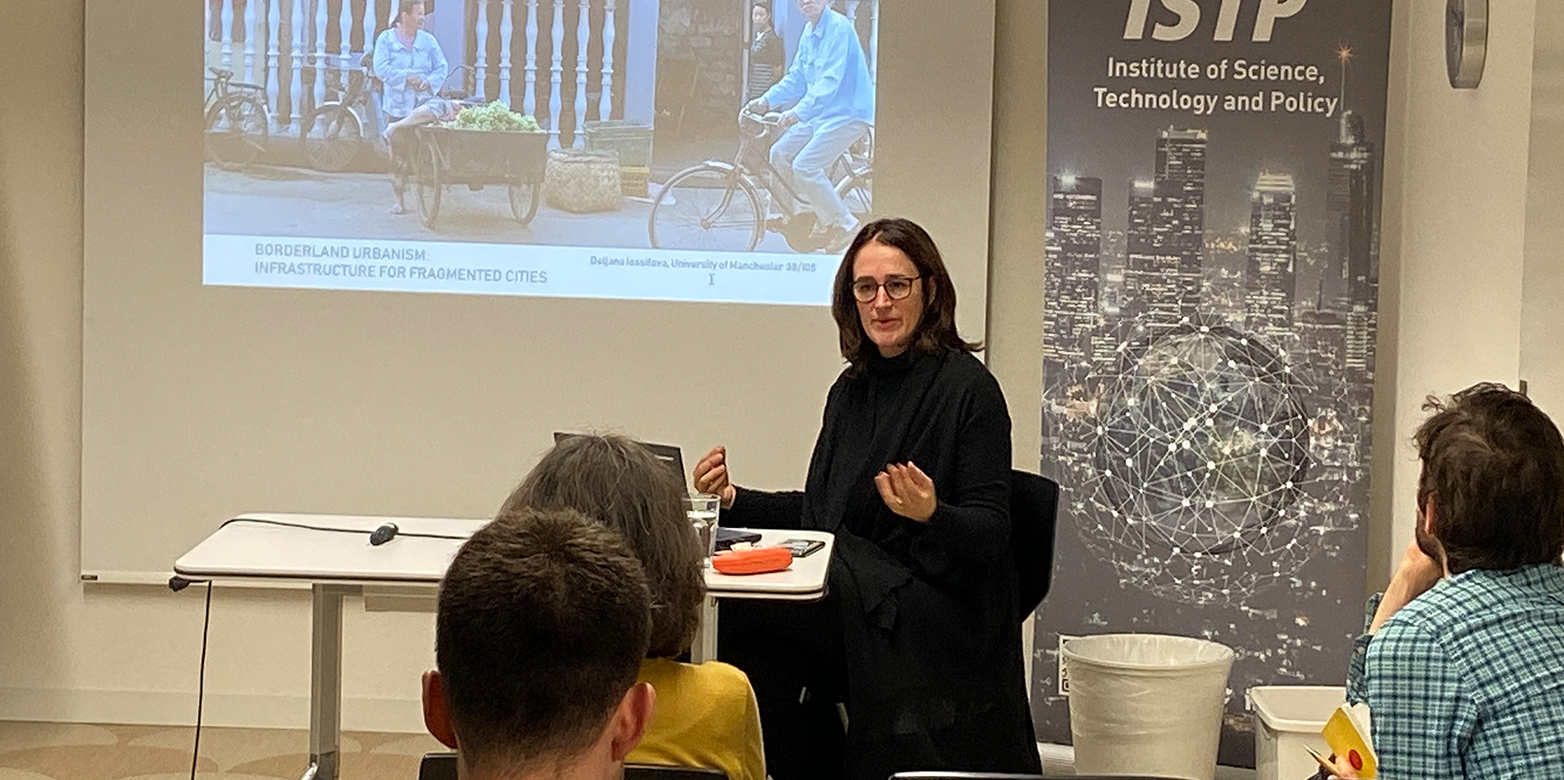Borderland Urbanism: Infrastructure for Fragmented Cities
Dr. Iossifova presented a new research program on the infrastructure for fragmented(ing) cities. This Colloquium's focus was Shanghai – Borderland formation, urban sanitation transitions and related policy challenges in a rapidly evolving socio-eco-technical system. Dr. Iossifova is senior lecturer in Urban Studies and director of the Confucius Institute at the University of Manchester.
by Johann S. Schuur

The presentation guides us through the effects of rapid urban developments in the early years of the 21st century, leading to fragmentation and struggles with urban sanitation in Shanghai. Iossifova documented the transformations extensively by frequenting border regions and connecting with the community. Doing so, she and her team were able to define a variety of rhythms and patterns concerning lifestyle, street vending, sanitation, and key interactions/players between the new and old residents.
The team on Iossifova’s projects include experts that span the realm of public policy, architecture and planning, urban theory, computational thinking, complex (multi-agent) systems and networks, simulation, geospatial sciences, sustainability, ecological economy, mathematical biology, collective behavior, transport systems and optimization, and spatial statistical analysis. The strong basis ensures the team to reach beyond agent based modeling. They combine both qualitative and quantitative data within a social sciences context. With their efforts, they hope to guide decision makers that are increasingly interested in different approaches to new sanitation practices.To effectively support the diversity in cultural, educational and value systems in Shanghai, a city of 24 million people to date, crucial roles are assigned to architects and policy makers.
The Institute of Science, Technology and Policy, would like to thank Dr. Iossifova and her team for shedding light on the multitude of challenges that fragmented cities face. Her research proves a valuable tool in framing policy problems and we therefore look forward to welcoming her back.
For more information about the talk and the full report, please visit our Reports page.